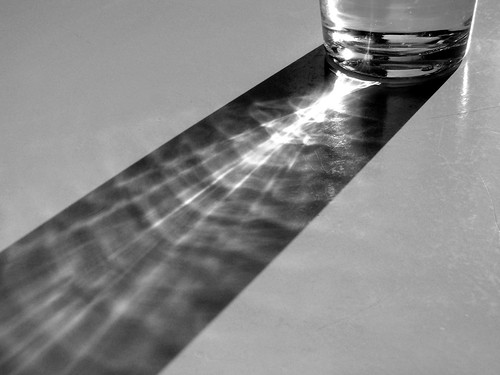The Myth
Everybody needs to drink 8 glasses of water per day to stay healthy.

The Facts
This is likely one of the most common fluid “prescriptions” on the planet. However, despite its historical use, there is little in the way of actual science to back up the recommendation that eight glasses of water is required for good health. In fact, according to the Institute of Medicine (IOM), one needn’t keep track of water consumption at all. Rather, healthy people should “let their thirst be their guide,” meaning that what we need to do is listen to our bodies rather than count our cups.
And while we’re at it, who says that only water counts? According to the IOM and other health authorities, we get about 20% of daily fluid intake from foods, not beverages! Think fruits, vegetables and soup, smoothies, etc. And of course, other beverages like juice, dairy and non-dairy beverages, and even coffee and tea are sources of the water that our bodies need to perform optimally.
What about the caffeine? A study conducted at the University of Connecticut revealed that the diuretic effects of caffeine are very similar to those of water itself. In other words, the liquid from caffeinated beverages does not result in a net water loss—it adds to our overall intake of fluid.
Nevertheless, water still rules as the beverage of choice for satisfying most of your thirst throughout the day. It contributes no calories, and the body needs water to function optimally. So while you shouldn’t worry about exactly how many cups or ounces you are drinking per day, it’s doesn’t hurt to set yourself up to stay hydrated.
The Action
Make it a habit to drink a glass of water when you wake up each morning, and be sure to drink something with each meal. You could also consider keeping a refillable bottle at your desk and a cup of water at your bedside.
This post is part of our National Nutrition Month series on common myths in nutrition. Check out our Nutrition Science category for more about nutrition myths and facts.